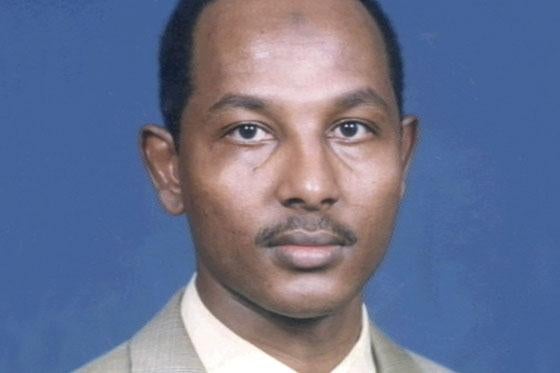
The week began with a letter from a Guantánamo Bay officer suggesting that I might have smuggled some Speedo swimming trunks and ‘Under Armour briefs’to my client, British resident Shaker Aamer. Shaker was apparently caught wearing both ‘contraband’items in his prison cell.
I was unsure whether to be amused or annoyed. These are serious allegations, yet the notion that I was going to slip a prisoner some Speedos was pretty silly. So I composed a reply that contained every euphemism for underwear that I could conjure up, and relished reminding the officer that I am more concerned with legal briefs than the Under Armour variety.
Surely it would be clear even to the Guantánamo authorities that their own guards must have supplied the offending lingerie. My internet research disclosed that Under Armour does a line of ‘tactical’underwear for the military. They’re camouflaged, presumably in case a soldier gets caught with his trousers down somewhere in the jungle. Meanwhile, the only pool of water where Shaker could employ his Speedos would be his lavatory, putting me in mind of the hackneyed admonition at the public baths: ‘We don’t swim in your toilet, so please don’t pee in our pool.”
I had imagined spending the week on something rather more pressing. Sami al-Haj, the Al Jazeera cameraman held in Guantánamo, has been on a hungerstrike for more than 230 days, more than three times as long as the IRA strikers in 1980. Sami was seized when on assignment to Afghanistan, apparently because the US thought he had filmed Al Jazeera’s famous Bin Laden interview. As has so often been the case of late, the US was wrong (though name me a journalist who would turn down a Bin Laden scoop).
Now Sami is being force-fed with a 110cm tube shoved down his nose. The military is doing it in a way that is calculated to be painful – or, to borrow General Craddock’s offensive euphemism, to make it ‘inconvenient’for Sami and others to continue their peaceful protest. Instead of leaving the tube in – which would be bad enough – they insert it and pull it out again with each feeding. I tried experimenting with this on myself one time and it is excruciating.
Sami began his strike when his patience finally ran out on 7 January of this year, the fifth anniversary of his incarceration without trial. I have just received the unclassified portions of my notes from a recent visit – every word he tells me has to go through the censors, so there is a lot I cannot pass on.
I am very worried about him. His memory has been going, along with his grip on the English language. He has developed a paranoid fear that he will be the next prisoner to die at the island gulag. ‘My prison number is 3, 4, 5,’he told me, his face serious. ‘First, in June 2006, there were three prisoners who died. Then, this May, there was a fourth to die. Three, four… five, I am afraid I am going to be the fifth.”
I administered a psychological screening test on Sami when I saw him. I cannot write what he said as (for reasons that are beyond me) that part was not cleared for public consumption. I’ve consulted with various mental health professionals about him. One doctor reminded me not to refer to Sami as paranoid: ‘His fears of mistreatment at the hands of the
Americans are not, unfortunately, paranoid. They are very worrying, but he has more than five years’ experience proving that they are very real.”
Doctors from the US, UK and Middle East all agree that there are urgent concerns about Sami’s health, and that he needs independent medical intervention. He won’t get it, no matter what I do. Sami has already told me what I have to say to his seven-year-old son, Mohammed, if he does not make it out of his prison cell alive. I hope I never have to deliver the message.
When BBC correspondent Alan Johnston was being held hostage by the Palestinian Army of Islam, Sami issued a plea asking them to let his fellow journalist go without conditions. It was broadcast by Sami’s Al Jazeera employers, in the hope that the kidnappers would be watching the Arabic news channel. I wonder how to contact Alan Johnston now, to see if he can return the favour. The western media has been too slow to come to Sami’s aid. I am not sure why.
Email pged@pressgazette.co.uk to point out mistakes, provide story tips or send in a letter for publication on our "Letters Page" blog
